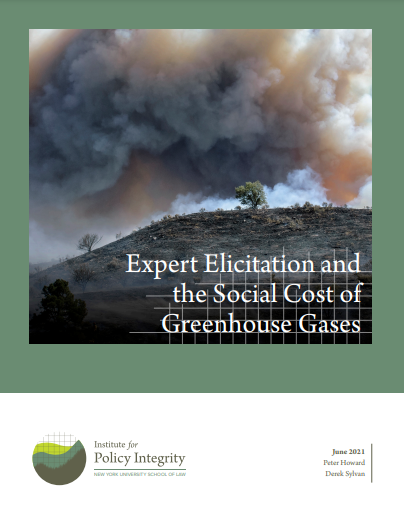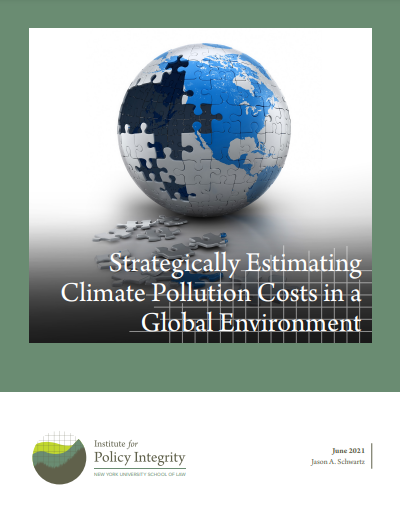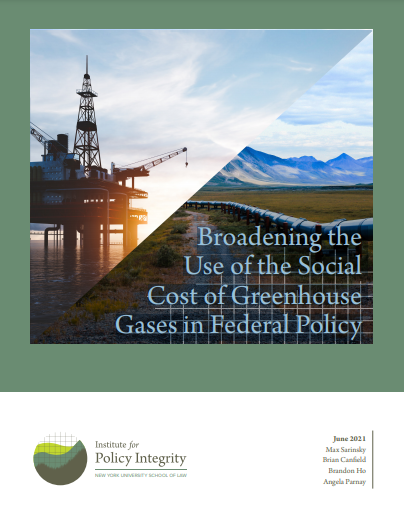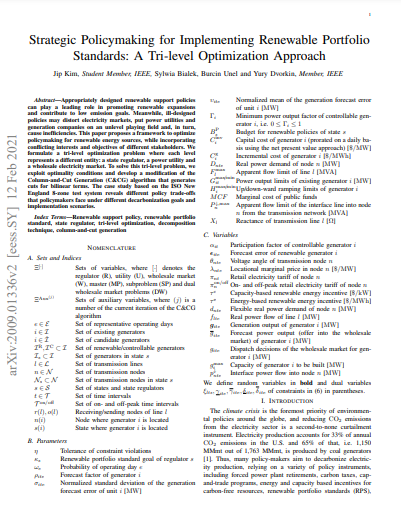The Institute for Policy Integrity produces a variety of publications. Our research reports develop in-depth research on our core issues, while our policy briefs and issue briefs provide focused analysis on more timely or particular topics. Our academic articles and working papers offer original scholarly research and analysis from established experts as well as fresh new voices.
Latest Publications
-
Expert Elicitation and the Social Cost of Greenhouse Gases
The Interagency Working Group on the Social Cost of Greenhouse Gases can use the findings from expert elicitations to improve the U.S. federal government’s social cost of greenhouse gas estimates, which are used in regulatory cost-benefit analysis and other policy contexts. Our report highlights several component updates, incorporating data from expert elicitations, that the Working Group should consider during its current update of the social cost of greenhouse gas estimates.
-
About Time
Recalibrating the Discount Rate for the Social Cost of Greenhouse Gases (Working Paper)
In light of recent evidence, a new range of discount rates appropriate for calculating the social cost of greenhouse gases could be conservatively estimated as between 0.5%-2.5%, with a central estimate of 1.5%. Agencies should follow the Interagency Working Group’s guidance on applying new social cost of greenhouse gas estimates based on updated discount rates—and will need to justify their choices, including any departures from prior practices.
-
Strategically Estimating Climate Pollution Costs in a Global Environment
Debate has reemerged about whether federal agencies’ policy analyses should focus on those climate pollution costs that will occur only within U.S. borders, rather than on the full global valuation of climate damages. The Interagency Working Group on the Social Cost of Greenhouse Gases provides compelling justifications to focus on global estimates. Based on a wide range available evidence, the Working Group should consider recommending a domestic valuation of at least 75% or more of the global values for optional use as a lower-bound estimate in sensitivity analysis.
-
Broadening the Use of the Social Cost of Greenhouse Gases in Federal Policy
Our working paper highlights numerous areas in which the federal government should apply the social cost of greenhouse gases beyond regulatory cost-benefit analysis. It is organized under the framework of “decision-making, budgeting, and procurement” laid out in the President’s executive order, identifying a number of relevant actions—like environmental reviews conducted under NEPA and the assessment of royalty rates for federal land-management. In short, application of the social cost of greenhouse gases would be extremely beneficial for any executive branch decision with significant greenhouse gas implications.
-
Strategic Policymaking for Implementing Renewable Portfolio Standards: A Tri-level Optimization Approach
Forthcoming
Appropriately designed renewable support policies can play a leading role in promoting renewable expansions and contribute to low emission goals. Meanwhile, ill-designed policies may distort electricity markets, put power utilities and generation companies on an unlevel playing field and, in turn, cause inefficiencies. This paper, forthcoming in IEEE Transactions on Power Systems, proposes a framework to optimize policymaking for renewable energy sources, while incorporating conflicting interests and objectives of different stakeholders.




